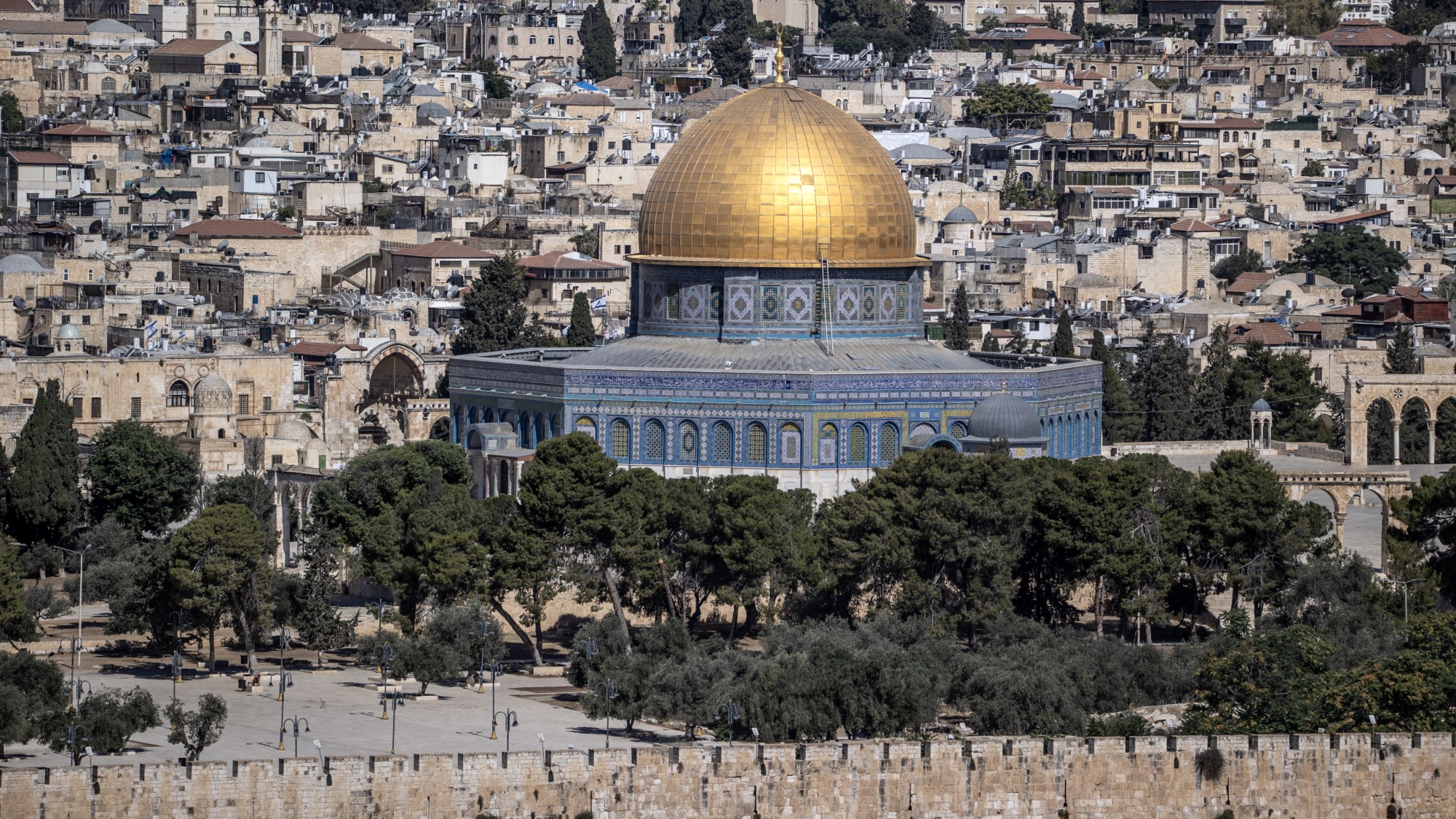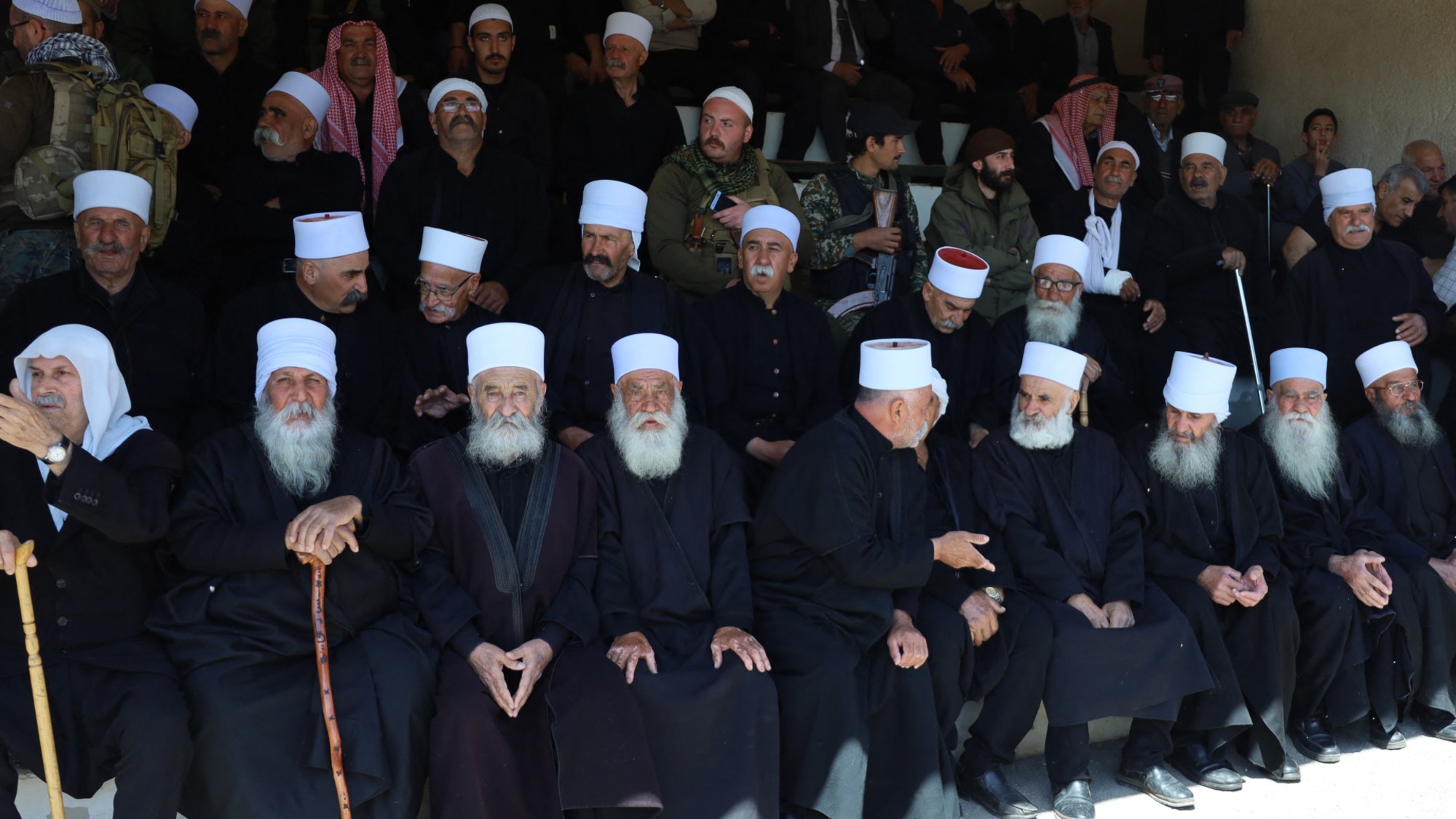Temple Mount: the politics of Judaism's holiest site
Latest provocation at religious site with a history of 'perpetual friction' risks violence erupting again

A free daily email with the biggest news stories of the day – and the best features from TheWeek.com
You are now subscribed
Your newsletter sign-up was successful
Israel's hardline national security minister has sparked outrage across the Muslim world – by flouting a decades-old arrangement aimed at keeping in check religious tensions over Jerusalem's Temple Mount.
On Sunday, Itamar Ben-Gvir prayed at the Al Aqsa Mosque compound that sits atop the Temple Mount, or Haram al-Sharif, as it is known to Muslims. A spokesperson for Palestinian Authority President Mahmoud Abbas said his visit "crossed all red lines".
What's the history?
"The history of the Temple Mount is one of perpetual friction," said Simon Kupfer in The Times of Israel.
The Week
Escape your echo chamber. Get the facts behind the news, plus analysis from multiple perspectives.

Sign up for The Week's Free Newsletters
From our morning news briefing to a weekly Good News Newsletter, get the best of The Week delivered directly to your inbox.
From our morning news briefing to a weekly Good News Newsletter, get the best of The Week delivered directly to your inbox.
It was the site of King Solomon's temple, destroyed by the Babylonians in 587BC, then rebuilt in 516BC only to be razed again, this time by the Romans, during the Great Jewish Revolt of AD70. It remains the holiest site in Judaism. In the seventh century, the Islamic Caliph Abd al Malik conquered Jerusalem and built the Dome of the Rock and the Al Aqsa Mosque there. The site then became the third holiest site in Islam, after Mecca and Medina.
Jerusalem changed hands repeatedly times over the next 1000 years, with control of the site often falling to each religion in turn. "After the 1948 Israeli-Arab war, Jordan controlled the Temple Mount and barred Jews from praying there," said Kupfer. Then, in 1967, Israel "stormed East Jerusalem" during the Six Day War and "raised the Israel flag over the Dome of the Rock". The then Israeli government, however, handed "day-to-day control of the temple" to a Jordanian-controlled Islamic trust called the Waqf, and "thus began the status quo that remains in place today".
Under a "delicate, decades-old arrangement" with Muslim authorities, "Jews can visit but may not pray there", said Sky News. "Suggestions that Israel could alter the rules at the compound have sparked outrage in the Muslim world before, and ignited violence in the past."
What's the latest flashpoint?
Last Sunday was Tisha B'Av, a day of mourning and repentance, when Jews reflect on the destruction of Solomon's temples. Ben-Gvir chose that day to lead a group of over 1000 worshippers in prayer, singing and dancing at the foot of the steps of the Al Aqsa Mosque and the Dome of the Rock.
A free daily email with the biggest news stories of the day – and the best features from TheWeek.com
The hardline national security minister has been sanctioned by the UK for "repeated incitements of violence against Palestinian communities" in the occupied West Bank. And on Sunday he called for Israel to "conquer and declare sovereignty" over Gaza and "encourage" Palestinians to leave the enclave.
Since entering government in 2022, Ben-Gvir has "persistently undermined the police's regulations for the Temple Mount and stoked outrage in the Arab and Muslim world", said Amos Harel in Haaretz. He has visited the site on a number of previous occasions but this is the first time he has led a congregation in prayer.
What will it all mean?
Arab nations, including Saudi Arabia and Jordan, have condemned Ben-Gvir's action, with Jordan describing it as a "blatant violation of international law and international humanitarian law, an unacceptable provocation, and a condemned escalation". Hamas said it represented a "grave and escalating crime against the mosque".
The timing of the visit "must be understood in a broader political context", said Haaretz's Harel. With Israeli PM Benjamin Netanyahu facing growing public pressure to agree a deal with Hamas to secure the release of the remaining hostages and end the war in Gaza, Ben-Gvir has clearly sought to pour "gas on the fire".
Netanyahu's office has been quick to stress that Israel's policy of maintaining the status quo at Al Aqsa "has not changed and will not change". So "either Netanyahu was unconnected to the events on the Temple Mount, or the visit was co-ordinated with Ben-Gvir, with the negotiations on a hostage deal in the background".
"There is, unfortunately, no clear solution" to the religious tensions around the site, said Kupfer in The Times of Israel. "Any attempts to impose rights for Jews to pray there will most likely, if not certainly, be met with yet another violent resistance. Any Israeli withdrawal will embolden Hamas and Hezbollah."
The history of the Mount is "soaked in blood". It's not a question of whether it "will spark another flame that ignites another conflict but, rather, when".
-
 How to Get to Heaven from Belfast: a ‘highly entertaining ride’
How to Get to Heaven from Belfast: a ‘highly entertaining ride’The Week Recommends Mystery-comedy from the creator of Derry Girls should be ‘your new binge-watch’
-
 The 8 best TV shows of the 1960s
The 8 best TV shows of the 1960sThe standout shows of this decade take viewers from outer space to the Wild West
-
 Microdramas are booming
Microdramas are boomingUnder the radar Scroll to watch a whole movie
